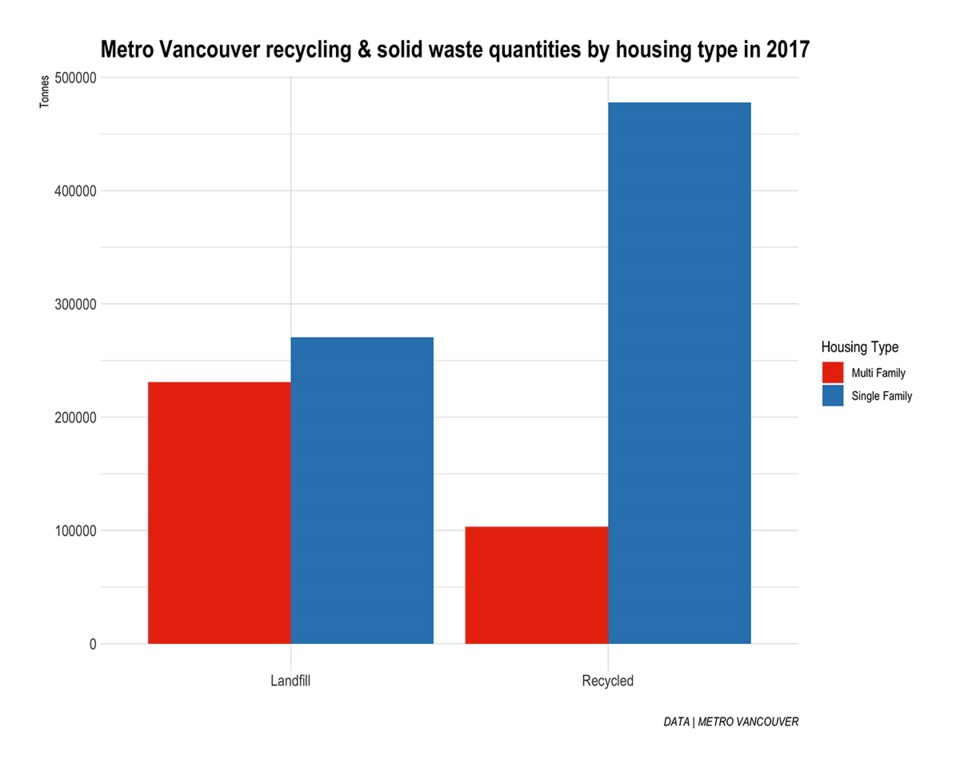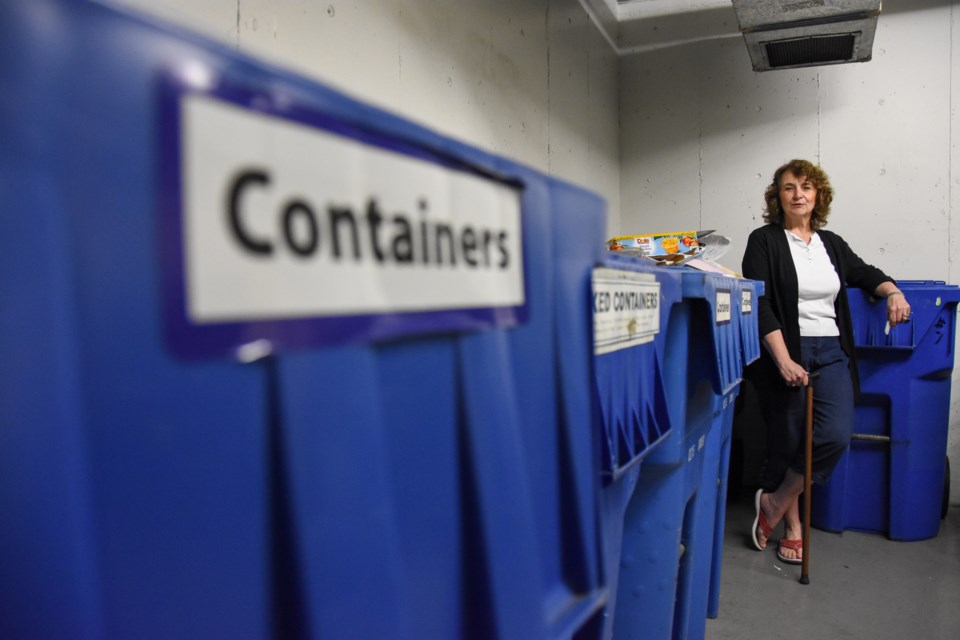When Claudette Friesen moved into her Coquitlam condo in the mid-1990s, hardly anybody in her 71-unit strata recycled.
Nearly 23 years later, the building has aged, and as with many residential complexes across Metro Vancouver, its residents’ recycling habits have matured with it.
As the president of the strata at The Madison, near the City Centre Aquatic Complex, Friesen has spent years putting up signs and distributing newsletters breaking down how residents should sort their trash. The strata council even gave out free compost buckets to each suite.
“We’ve tried really hard to help people wherever we can,” Friesen told The Tri-City News. “We always have the chronic offenders, the people that don’t follow the rules. It’s part of living in a condo.”
Over the last quarter century, the total percentage of waste syphoned off into the recycling system — known as the recycling rate — has slowly crept up from a 39% to 63% across Metro Vancouver, an enviable number compared to many cities, but still far short of the region’s aspirational 2020 target of 80%.
But even as Metro Van makes progress, residents living in condos and apartments have struggled to keep up with the recycling habits of people living in single-family homes. And in a region where densification and multi-family living has increasingly become the new norm, that’s a problem.
A 2017 waste composition report found that multi-family homes diverted about a third of all their waste into the recycling system — less than half the recycling rate found in single-family homes, where 64% of all waste was recycled in 2017.

Condo dwellers have also been found among the most likely to consume single-use items. In a Metro Vancouver report released earlier this month, the average person in a multi-family home was found to use nearly twice as many plastic bags as someone in a single-family home; more than three times as many coffee cups; and twice as many rigid plastic takeout containers.
Those numbers don’t surprise Friesen. While she says most of the people in her building try to recycle, the realities of living in an old building whose residents speak a variety of languages make the cultural shift towards recycling difficult.
More and more people have made the switch to condo life across Metro Vancouver. And while newer buildings often have the space to house a large sorting room, older condos like Friesen’s have been forced to cram several bins into rooms that once just held single-stream garbage cans.
More than anything, says Friesen, shared living leads some residents to shirk their responsibilities, either because they are first-time condo owners and don’t know the recycling routine or they have unrealistic expectations that other people will deal with their garbage.
“If you’ve never lived in a condo before and you buy into this ‘you’re not responsible’ kind of thing, you assume that your strata will come in and change your lightbulb,” she said.
Chris Allan, manager of solid waste for Metro Vancouver, sees that playing out in condos across the region.
“It’s the horde mentality,” said Allan. “Once neighbours in the same building start abandoning recyclables, everyone starts to do it, and sooner or later, it all breaks down.”
Since the early 1990s, the diversion rate has slowly crept up struggling against people’s consumption habits in a world where throwaway electronics and and the latest fashion item provoke endless spending.
Today, the recycling non-profit Encorp Pacific says that across the Lower Mainland, 40,000 tonnes of textiles end up in the landfill every year, equal to over 217 million medium cotton T-shirts.
And as the metro area battles to make gains on a per capita basis, the sheer volume of garbage produced by a growing metro area — one anticipated to increase by one million people by 2050 — complicates a drive to a zero-waste future.
“We’re battling population growth,” said Allan.



